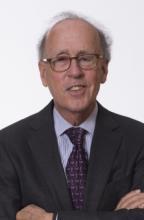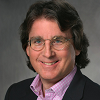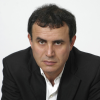The Fable of the Chinese Whistleblower
NEW HAVEN/HONG KONG – Public opinion in the United States pins the blame for the COVID-19 pandemic squarely on China. After all, that’s where the virus started. And President Donald Trump and Secretary of State Mike Pompeo have fanned the flames by accusing China of covering up the outbreak and knowingly allowing the novel coronavirus to spread. But their supposed smoking gun, the tragic fate of the heroic whistleblower, Li Wenliang, fires only blanks.
Li, a doctor, was purportedly silenced and chastised by Chinese officials for warning on December 30, 2019, about a new virus in the Wuhan hospital where he worked. When it became evident that he was on to something serious – so serious, in fact, that it ultimately killed him – the Chinese government changed its tune and celebrated Li’s bravery. If only that had happened sooner, the argument goes, the world would have avoided this horrific pandemic.
But that’s not what happened. Li was a courageous young man. His actions, however, were relatively unremarkable. Indeed, his role has been distorted without regard for fact.
The first Chinese doctor to report a new virus was not Li, but Zhang Jixian, the 54-year-old director of the respiratory and intensive care departments at the Hubei Provincial Hospital of Integrated Chinese and Western Medicine, also located in Wuhan. On December 27, three days before Li’s actions, Zhang diagnosed a family of three suffering from a viral pneumonia of unknown type and immediately submitted a report to her hospital, which, in turn contacted the Wuhan Health Commission on December 29.
Contrary to the Western narrative, the initial response of local authorities was prompt, albeit not without error. Facts and dates are important here. One day later, on December 30, the Wuhan Health Commission sent an urgent warning to all medical institutions under its jurisdiction about the outbreak of a mysterious new pneumonia.
Within hours, the central government dispatched an expert working group from the National Health Commission to conduct on-site investigations and organize a potential epidemic response. The team arrived early the next morning, December 31, and by 1 p.m. that day, the Wuhan Health Commission issued a public announcement about 27 pneumonia cases of unknown origin. The warning added that there was “so far no discovery of cases of obvious human-to-human transmission or infection of medical workers” – a mistake that would haunt China.
Following standard protocols for infectious diseases, the World Health Organization was informed immediately on December 31. The WHO’s Disease Outbreak News acknowledges receiving a report that day “… of cases of pneumonia of unknown etiology (unknown cause) detected in Wuhan City.” In other words, the WHO sounded a global alert only two days after Zhang’s hospital filed its initial report.
Li, an ophthalmologist, was not trained to diagnose complex respiratory diseases. He and a few other doctors probably saw the December 30 urgent notification from the Wuhan Health Commission. Out of understandable concern, they sent instant messages to friends a little before 6 p.m. that day, warning of a potential outbreak.
The message went viral. Local police then came in, having tracked Li’s warning through China’s notorious Internet surveillance. Yes, the police reprimanded Li on January 1 for spreading a rumor, and he signed a “paper of admonishment” on January 3. But this is not as disturbing as it may seem. At that point, no one, including Zhang and Li, had any insight into the true nature of the disease. Nor did the Wuhan police, who were understandably concerned about seemingly alarmist messages. But Li was not arrested or otherwise punished for rumormongering. Unfortunately, Li died of the coronavirus on February 6, the same day Zhang was officially honored as the real whistleblower.
So where is the smoking gun? After testing a stricken family for known viruses, all Zhang knew was that this ailment was different and sounded the alarm, which was enough to spur a quick response from officials at both the local and national levels.
The major early mistake – the failure to consider the possibility of human-to-human transmission – was a judgment error, which probably reflected an under-reporting of cases. Sadly, that lesson has been lost on the US, which continues to suffer from a glaring deficiency of testing and a related undercounting of infections.
This is where the Trump administration’s conspiracy theory falls apart. COVID-19 is a novel coronavirus – it had never occurred before. Local Chinese officials were just as confused as anyone at the first signs of this outbreak. And they remained confused for some time. Why else would they have allowed street parties and holiday travel out of Wuhan prior to the Chinese Lunar New Year? When China’s national health officials did comprehend the virus’s highly contagious nature, Wuhan was shut down and sealed off, on January 23, 2020. Moreover, contrary to the Trump administration’s cover-up narrative, China did not deliberately keep US officials in the dark. The director of China’s Center for Disease Control and Prevention (CDC) briefed his US counterpart on January 3 – within a week of Zhang’s initial report.
While initial contact between the two CDCs was interrupted by the New Year holiday, the coordination between the two countries’ public health officials was much closer – and, as WHO Disease Outbreak documentation verifies, the time lags were considerably shorter – than is widely believed in the West.
The contrast with America’s response is striking. Whereas 27 days passed from Zhang’s initial report to the Wuhan shutdown on January 23, the US took exactly twice as long (54 days) to go from its first official diagnosis of COVID-19 (January 20) to Trump’s declaration of national emergency (March 13).
Li’s death plays a central part in the conspiracy theories that drive the anti-China discourse of Trump’s Republican Party. The “Corona Big Book,” a leaked 57-page GOP Campaign 2020 strategy document is, in fact, filled with distorted accounts of the so-called intimidation of Li. It makes no mention of Zhang.
Equally important to the GOP strategy is the charge that COVID-19 was spawned in a lab at the Wuhan Institute of Virology. Notwithstanding the rejection of such allegations by US and other Western intelligence sources, leading scientists, and Anthony Fauci, America’s foremost expert on infectious diseases, the GOP’s mendacious claims persist.
Whether it’s the lab in Wuhan or the alleged martyrdom of Li, the implications are the same: the more the US struggles with the ravages of COVID-19, the more desperate Trump and his loyalists are to blame China. In a political strategy laced with conspiracy theories, facts matter little.
Stephen S. Roach is a faculty member at Yale University and the author of Unbalanced: The Codependency of America and China. Weijian Shan, CEO of PAG, is the author of Out of the Gobi and the forthcoming Money Games.
Copyright: Project Syndicate, 2020.
www.project-syndicate.org
This article is brought to you by Project Syndicate that is a not for profit organization.
Project Syndicate brings original, engaging, and thought-provoking commentaries by esteemed leaders and thinkers from around the world to readers everywhere. By offering incisive perspectives on our changing world from those who are shaping its economics, politics, science, and culture, Project Syndicate has created an unrivalled venue for informed public debate. Please see: www.project-syndicate.org.
Should you want to support Project Syndicate you can do it by using the PayPal icon below. Your donation is paid to Project Syndicate in full after PayPal has deducted its transaction fee. Facts & Arts neither receives information about your donation nor a commission.


















